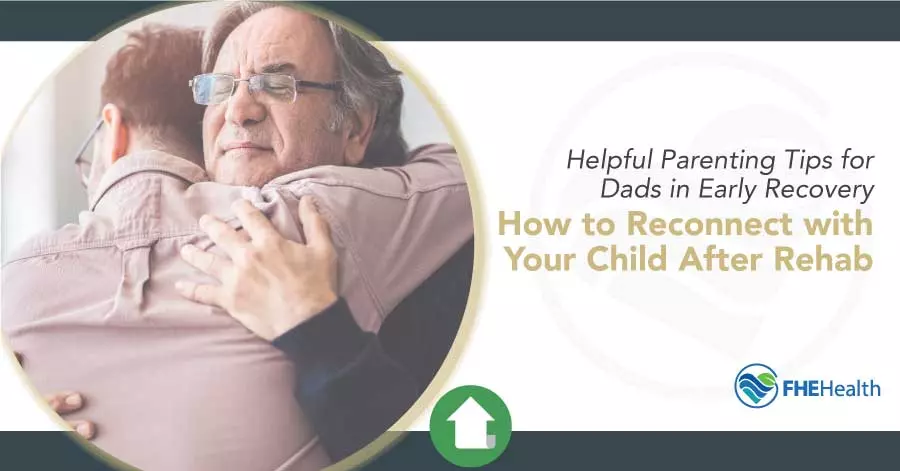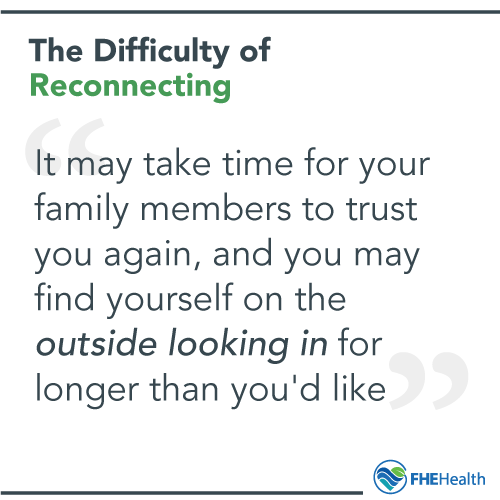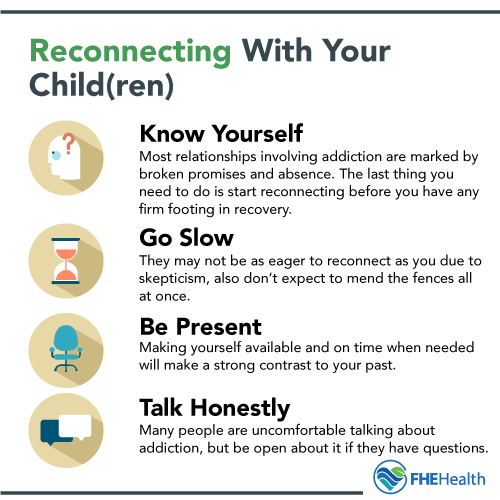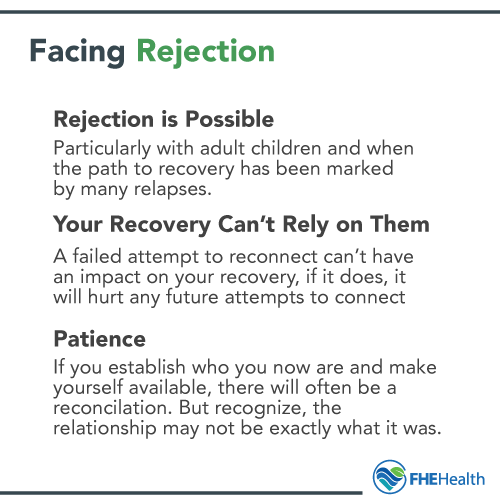
Leaving behind addiction and entering the world of sobriety is a unique experience. The truth of the thoughts, feelings, justifications and activities maintained during the height of addiction become clear as the fog lifts, leaving many people with a new and often harsh perspective on life. The toxicity of habits and choices made while suffering from a substance use disorder is often unclear in the moment, resulting in a transitory period in which recovering addicts are forced to face reality, no matter how unpleasant.
For those with families, this time can be particularly challenging. The consequences to spouses and children during active addiction can be immense in a way that creates an additional web of complexity to face after rehabilitation. Many fathers find themselves facing a rush of emotions in recovery, particularly if they feel as though they failed to uphold their perceived role as a caretaker and provider.
Reclaiming your role as a trusting, doting and responsible father won’t be easy. It may take time for your family members to trust you again, and you may find yourself on the outside looking in for longer than you’d like. However, with the right perspective and approach to recovery, it’s possible to reconnect with your child and restore the strength of your family unit.
Assessing Your Family Situation
 When you return from treatment and reunite with your family, it’s important to first take stock in where you stand — and this may mean facing truths you’d rather ignore. You likely met with your family regularly while in treatment, but returning home means seeing the reality of how your addiction changed them.
When you return from treatment and reunite with your family, it’s important to first take stock in where you stand — and this may mean facing truths you’d rather ignore. You likely met with your family regularly while in treatment, but returning home means seeing the reality of how your addiction changed them.
Rather than assuming everything is fine, ask yourself these kinds of questions to be sure you truly understand the road that lies ahead:
- How much did my child witness, including drug use or binge drinking? Did their friends witness substance use?
- Did I neglect any responsibilities while using substances, like forgetting school carpools or failing to attend events such as school plays?
- Did I ever lash out in anger due to my substance use?
- Did I ever take strides toward physical or emotional abuse while under the influence?
- Did I ever endanger my child while I was drunk or high?
- Did I do anything else to harm my relationship with my children?
These aren’t easy questions, and they may bring up negative memories, but finding answers can help you create a plan to mend fences, or at least better identify the starting line.
Reconnecting With Your Child
 Once you’re out of rehabilitation and back with your family, you may want to act as though nothing has changed. And to you, it’s possible nothing has; your family is still the same as they were before you left.
Once you’re out of rehabilitation and back with your family, you may want to act as though nothing has changed. And to you, it’s possible nothing has; your family is still the same as they were before you left.
However, they are distinctly aware that you are very different. They may be bitter at the way you treated them, fearful that your recovery won’t last or mad at you for things you did while in the depths of your addiction.
Reclaiming your family and forging new connections with your child is possible, but you need to approach this journey the right way.
Know Yourself
Self-discovery is a big part of rehabilitation, and you can’t make the changes you need without fully understanding what led to your addiction and what you need to do to stop it from happening again. Until you can vocalize what happened, why it happened, and what you will do to prevent relapse, there’s no clear way to share these things with your family.
Therapy is an important element in rehabilitation programs, and it can be beneficial to keep this going when you reenter society. It may also be helpful to invite your spouse or child to these sessions to work through interpersonal situations and demonstrate your growth throughout your treatment.
You can’t pretend to be someone you’re not to your family. Instead, work to show family exactly who you have become over the course of your treatment.
Go Slow
It’s important to realize that you can’t mend the fences you destroyed in one night. You likely want to put your troubles behind you, but the results are still fresh and raw for those you affected.
The best thing you can do is go slow. Don’t try to press too quickly or try to do too much, too soon.
Start the process of rebuilding your life at the bottom. Move back into your house, find a job, and begin to provide once again. Go to family dinners, ask questions about your child’s day, and be as transparent as necessary so that your family understands that you are sober.
As your family gets used to having you around again, you can begin to take more proactive steps, like inviting your child to see a movie or go out to dinner with you. If they accept, you can continue to step back into the role of the dad you used to be.
If they don’t, don’t force them to interact. Instead, continue to put in the effort and try again in a few weeks or months.
Be Present
Even if your child is shutting you out or is hesitant to trust you, be as present as possible. Attend holiday events, see school plays, go to every sporting event, and even ride along during carpool if your spouse doesn’t trust you to handle it solo. Go to doctor’s appointments, offer to play games, plan activities, and do anything else you can think of to show that you are reformed and are going to be around from now on.
This may seem disingenuous at first, as if you are just going through the motions, but in time, your child will get used to seeing you at events and will start to view you as a reliable, engaged and interested parent. Getting to this point can take time, but stay committed. Even if your child doesn’t respond, don’t let this be a reason to stop making an effort.
Talk Honestly
Your child may have questions about your addiction or addiction in general. This is only natural, particularly for those children attempting to come to terms with the changes to their family dynamic.
Make sure your child knows they can always talk to you and that no topic is off limits. Be prepared to talk about your journey, the realities of what you did and why you did it, and how you feel about the process of recovery.
Don’t lie or attempt to make things seem better; children, especially older children and teens, know how to identify lying and will easily see the disconnects between your story and reality. It may not be easy, but this kind of vulnerability can be an important part of reestablishing trust.
Speaking honestly also means apologizing honestly. Be prepared to tell your child that you are sorry and you regret your actions. If you make promises, be sure to keep them, no matter what it takes to do so.
Facing Rejection
 While it would be nice if every wronged family welcomed back recovering addicts with open arms, life’s not a fairy tale, and this isn’t guaranteed. Despite your efforts, your family may truly not be interested in maintaining a relationship with you at this time. This is often true for adult children, particularly if you have been an addict for the formative years of childhood.
While it would be nice if every wronged family welcomed back recovering addicts with open arms, life’s not a fairy tale, and this isn’t guaranteed. Despite your efforts, your family may truly not be interested in maintaining a relationship with you at this time. This is often true for adult children, particularly if you have been an addict for the formative years of childhood.
This kind of rejection can be deeply painful and hard to face, but you’re going to have to accept it, no matter how much it hurts. You can continue reaching out periodically, writing letters or placing calls, but you will have to be patient.
Your family has to operate on their own schedule, and you can’t force them to do anything if they are unwilling to reforge bonds. Any repairs to your relationships will happen on their schedule, not yours.
In many cases, children do eventually want to restore bonds with wayward parents, but there are always outliers. If your family chooses to close you out forever, you must understand that this is a product of your circumstances that you cannot change.
Life after rehab isn’t easy. It’s a hard road, and there’s nothing you can do to get things back to normal any faster. However, the struggles you face will only make you stronger, providing the kinds of coping methods you need to prevent relapse and live a long, happy life.






